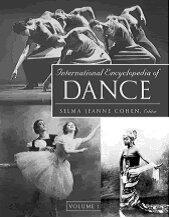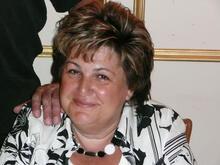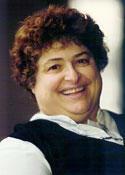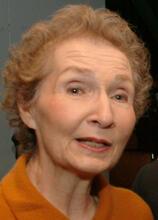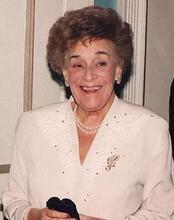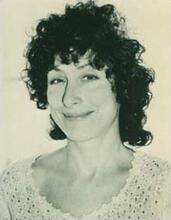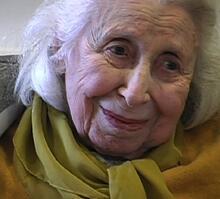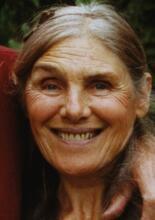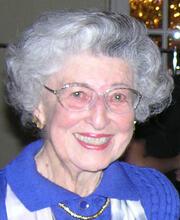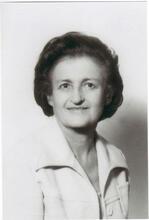Jaya Torenberg
Jaya Torenberg (born Elena Rodov) was a pioneering Mexican Jewish educator. She was among the first students at Mexico City’s Colegio Israelita de México (a secular Yiddish school), graduating from its ninth grade in 1945 and then from its Yiddish-Hebrew Teachers Seminar in 1948. After teaching Yiddish to elementary and junior high school students at the Colegio Israelita, she became director of the school’s preschool and kindergarten in 1960. In 1972, she became the first woman in the Mexican Jewish community to serve as director of a Jewish school. After leaving the Colegio Israelita to pursue a higher degree, she continued to teach in Jewish institutions, as well as authoring two autobiographical books. All three of her daughters followed her path and worked as teachers and principals in Jewish schools in Mexico City.
Early Life & Education
Elena (later known as Jaya) Rodov was born on October 6, 1930, in Mexico City to Shmuel Yosef Rodov and Bashe Bascovich, who immigrated to Mexico from Smilevich, Russia, in 1925. Both her parents were Zionist activists in Mexico, Shmuel Yosef working for Keren Kayemet and Bashe for the Pioneer Women Organization.
Elena received a traditional Jewish education at home before entering school, and when the Colegio Israelita de México (a secular Yiddish school, based on the model of the CYSHO schools in Poland *) opened its kindergarten in 1935, she was among the first students. She attended the Colegio Israelita until she graduated from ninth grade in 1945. (The Colegio Israelita de México instituted a high school program in 1948).
In 1945 the school opened Mexico’s first Yiddish-Hebrew Teachers Seminar, from which she graduated in 1948. Around this time, she changed her name to Jaya. At the Seminar, she studied under the prominent Jewish educator Abraham Golomb, who instilled in her a passion for Jewish secular culture.
Teaching Career
Jaya began her career as a Yiddish teacher for elementary school and junior high school students at the Colegio Israelita de México. She also tutored other students on Yiddish and Jewish History. In 1950, she married Julio Torenberg.
In 1960, Torenberg became director of the preschool and kindergarten at the Colegio Israelita. During this period, she worked with a group of other Yiddish educators to create three records containing stories and songs for children in Yiddish.
In 1972 Torenberg became the first woman in the Mexican Jewish Community to become Director of a Jewish School (Colegio Israelita de México), a post she held until 1976. During her tenure, the school grew to become the largest of the six Jewish day schools in Mexico City. She introduced ORT workshops into the school and promoted high-level professional training for her teachers.
Higher Education & Writing
Torenberg left this post to pursue a higher degree. She enrolled at the Universidad Anahuac, where she received a degree in Humanities. She also returned to the Hebrew Teachers Seminar as a teacher and enrolled in several college courses in education. In 1988, she received a Diploma in Jewish Studies from a joint program of the Universidad Iberoamericana and the Hebrew University in Jerusalem.
In 2016 Torenberg co-authored (with Dr. Anet Pier) the “Yiddish Lottery,” a Yiddish version of the typical Mexican game of lottery with images by a renowned Mexican Jewish artist that was widely distributed throughout the Mexican Jewish community.
As an educator in several prestigious institutions, Torenberg was a well-known figure in the Mexican Jewish community. She coordinated a seminar in Yiddish literature at the Universidad Iberoamericana for a Yiddish-speaking group of seniors.
In 1988 Torenberg became executive president of Asociación Gilberto, a Mexican non-Jewish association that provides aid to underprivileged communities after natural disasters.
Torenberg was the author of two autobiographical books: “De una Historia de Abandonos” (2005) , in which she narrated the saga of her family in Belorussia during the Nazi occupation and her parents’ story of living safely in Mexico during that time, and “La Vuelta a la vida en 85 años” (2015), a compilation of short stories about her life experiences, her family, and her country.
Torenberg’s passion for Jewish education, as well as her husband’s involvement in the welfare of Jewish institutions, especially the Colegio Israelita de México, were always present in their home home and were a strong influence on their three daughters: Jenny, Esther, and Raquel. All of them followed her path and worked as teachers and principals in the Colegio Israelita de México and other Jewish schools in Mexico City. Her six grand-children graduated from the Colegio Israelita de México, and now her great-grandchildren attend the same school.
Jaya Torenberg died on December 2, 2021.
*Di Tsentrale Yidishe Shul-Organizatsye (Central Yiddish School Organization), commonly known by its acronym, TSYSHO or CYSHO, was established in Warsaw in June 1921. Led primarily by members of the Bund and Left and Poalei Tsion, its founders sought to create a network of secular Yiddish schools under socialist auspices.
Personal interview. 2019. México.
Rubinstein, Alejandro et.al. Huellas, Judíos Ashkenazitas Destacados en México. Mexico: Editorial Promente, S.A de C.V., 2017.
Torenberg, Jaya Elena. De una Historia de Abandonos. Mexico: Reproducciones y Materiales S.A de C.V., 2005.
Torenberg, Jaya Elena. La vuelta a la Vida en 80 años. Reproducciones y Materiales. Mexico: S.A de C.V., 2015.

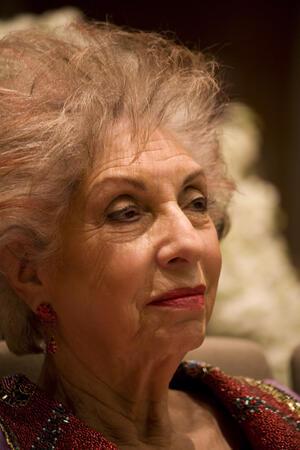
![blue.jpg - still image [media] blue.jpg - still image [media]](/sites/default/files/styles/medium/public/mediaobjects/blue.jpg?itok=RkdKmpf6)
